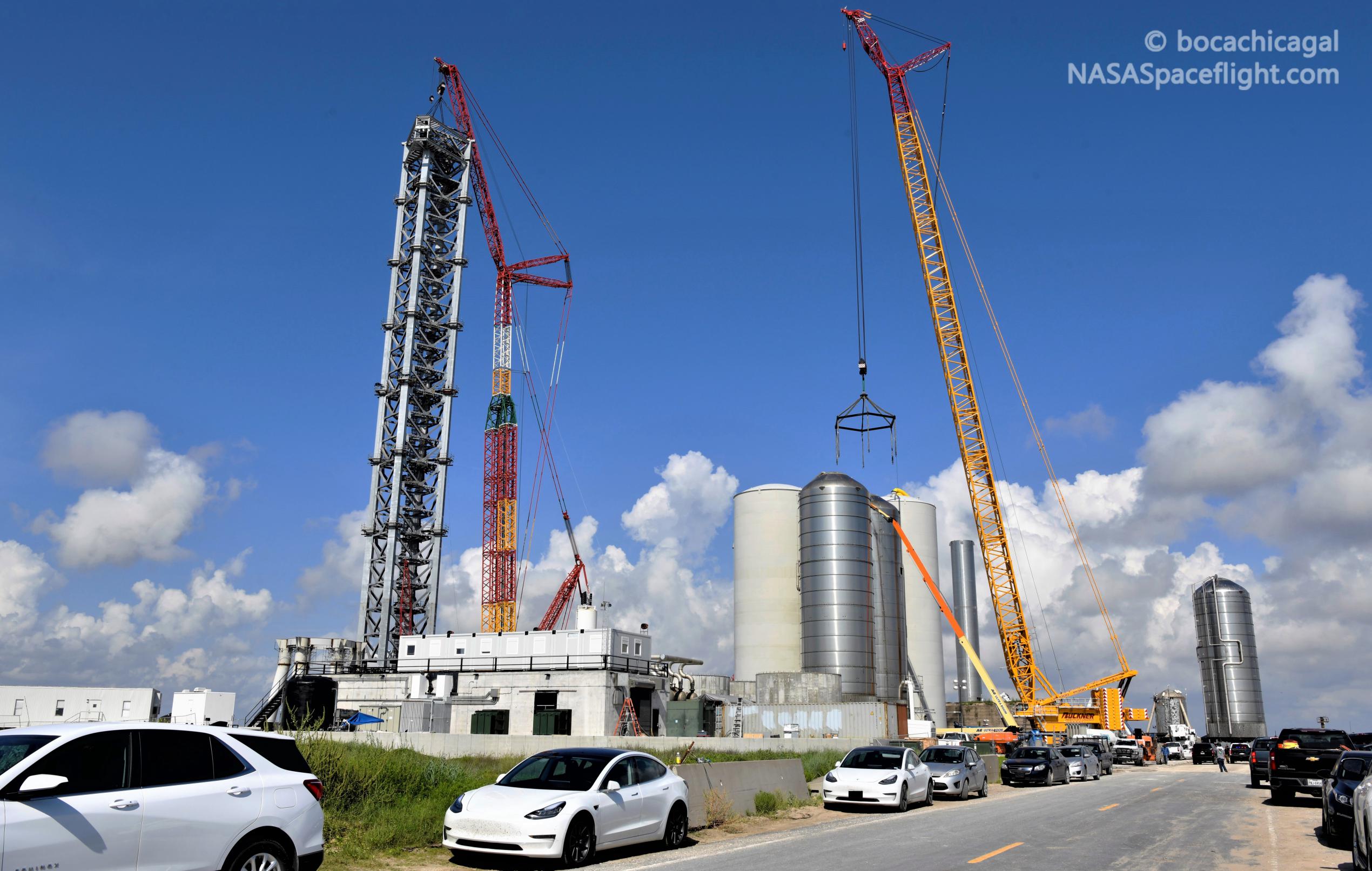
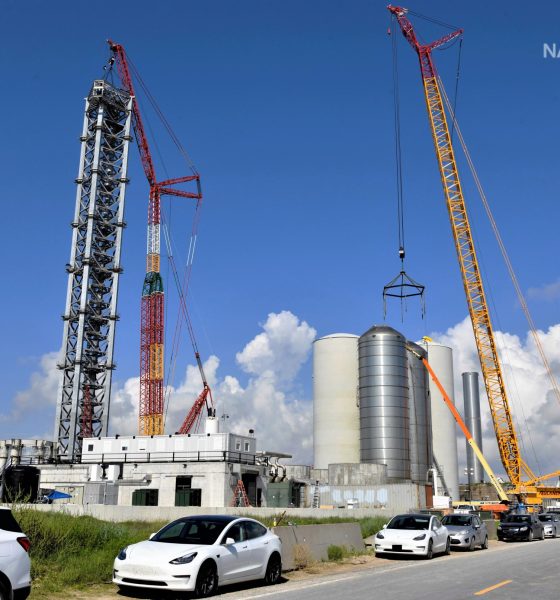
News
SpaceX shifts South Texas focus to Starship’s orbital launch pad
Highlighted by a Wednesday jam-packed with important milestones, SpaceX appears to be shifting its focus in South Texas to the completion of Starship’s first orbital launch pad.
Boca Chica will be the first time in its history that SpaceX has faced the challenge of (or had the opportunity to) build an orbital launch complex from scratch after gaining a great deal of expertise modifying, reactivating, and rebuilding two existing pads in Florida and one in California. SpaceX’s Boca Chica facilities must also support what will be the most powerful rocket ever built (or tested) and a planned flight rate and turnaround capability that drastically exceeds anything the company (or anyone else, really) has attempted.
As a result, the site looks almost nothing like SpaceX’s other launch facilities. On top of the already significant hurdles faced, SpaceX is also attempting to complete its from-scratch facility in record time and work on Starship’s orbital launch site (OLS) really only began in earnest around the start of 2021. That aggressive work schedule has begun to clearly bear fruit in the last few months and arguably reached a bit of a local peak on Wednesday, July 28th.
A Tower Is Born
Kicking off the day after an aborted attempt on Tuesday, SpaceX began what would turn out to be an extremely busy Wednesday around 5am CDT (UTC-5) with the installation of the Starship launch tower’s ninth and final prefabricated section, effectively completing the structure’s skeleton. Unlike all other SpaceX pads, save for Pad 39A’s single-purpose Dragon and Crew Access Arm, Starship’s first orbital launch pad will lean heavily on a massive steel tower.
By all appearances, Starship’s launch tower will host an elevator-like carriage outfitted with several large arms on its exterior and will use those arms to stabilize, stack, fuel, and maybe even catch Starships and Super Heavy boosters. The tower will be integral to routine Starship launch operations, in other words.
With the installation of one last steel segment, that tower grew to a height of ~145m (~440 ft) and isn’t expected to get any taller after a 10m/30ft lightning rod is eventually added. SpaceX’s pad team can now begin the process of finalizing tower construction, ranging from adding cladding on its rectangular exterior and welding all nine steel sections together to filling its four legs with concrete.
Tank and Table
Just a few hours after the start of Tower Section #9 installation, a fleet of SpaceX’s self-propelled modular transporters (SPMTs) left the build site with two major pieces of orbital pad hardware in tow. For the first time in three months, one of those payloads was an OLS propellant storage tank built by SpaceX itself out of parts almost identical to those found on Starship. Since the first two ground support equipment (GSE) tanks were rapidly installed in April, activity on that front has been curiously stagnant.
Since modifications of those tanks began in-situ over the last month or so, the general consensus has been that a fairly minor design flaw or oversight was discovered well after production began, requiring a significant pause to rework and redesign the crucial pad components. In the meantime, work on contractor-built GSE tank shells meant to eventually insulate SpaceX’s thin cryogenic storage tanks continued unabated and one water tank and six shells have already been more or less completed. With any luck, GSE tank #5’s delivery to the OLS means that SpaceX has removed the roadblock(s) and is ready to move into plumbing and tank farm activation.
Simultaneously, a far more significant part known as the Starship ‘launch table’ also left SpaceX’s Boca Chica build site after nearly six months of around-the-clock assembly and outfitting. Designed to secure, fuel, and launch orbital Starships, the launch table has to be able to withstand the ~5000 metric ton (~11 million lb) weight of a fully-fueled Starship, hold Super Heavy in place during static fires and prelaunch ignitions that could produce ~7500 metric tons of thrust, and survive the unspeakable fury of 33 Raptor engines operating simultaneously.
Unlike all other major orbital Starship launch pad parts, the custom launch mount and table’s successful and near-total completion is an absolute necessity for any kind of orbital test flight or full-up Super Heavy static fire. Only part of the tank farm is truly necessary and the vast majority of the tower’s intended tasks can be completed with workarounds if neither are fully ready. Without the launch mount, however, testing much beyond what SpaceX has already accomplished is mostly impossible in the near term.
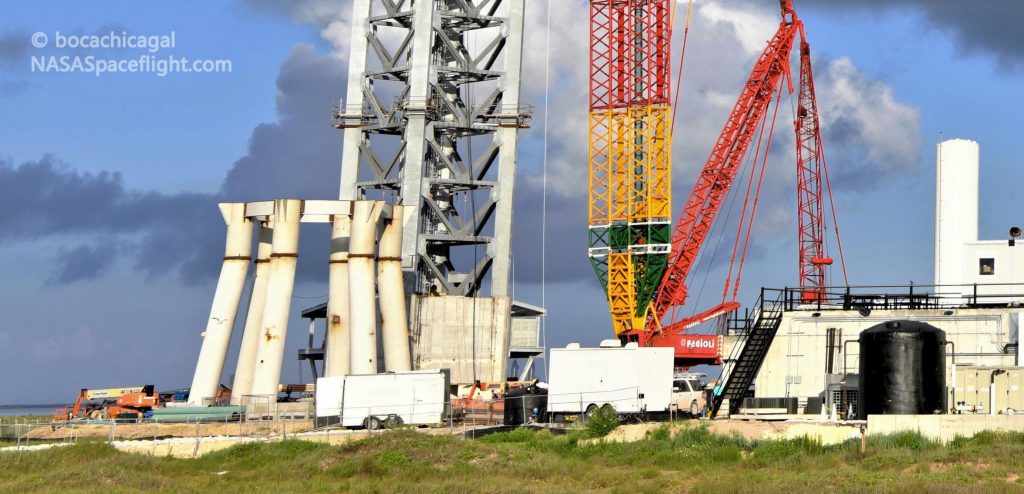
Raptor Invasion
Finally, while less pressing, SpaceX also accepted delivery of four Raptor engines on top of three more that were delivered to Boca Chica on Tuesday. According to CEO Elon Musk, Starship’s first orbital test flight(s) will happen with a full complement of engines installed, meaning that SpaceX will need to build, qualify, and ship at least 35 new Raptors for a single flight.
SpaceX recently completed assembly of the 100th full-scale Raptor engine at its Hawthorne factory and HQ – an encouraging sign that the engines needed for Starship’s orbital launch debut will be ready for flight sooner than later.

Elon Musk
Elon Musk to attend 2026 World Economic Forum at Davos
The Tesla CEO was confirmed as a last-minute speaker for a session with BlackRock CEO Larry Fink.
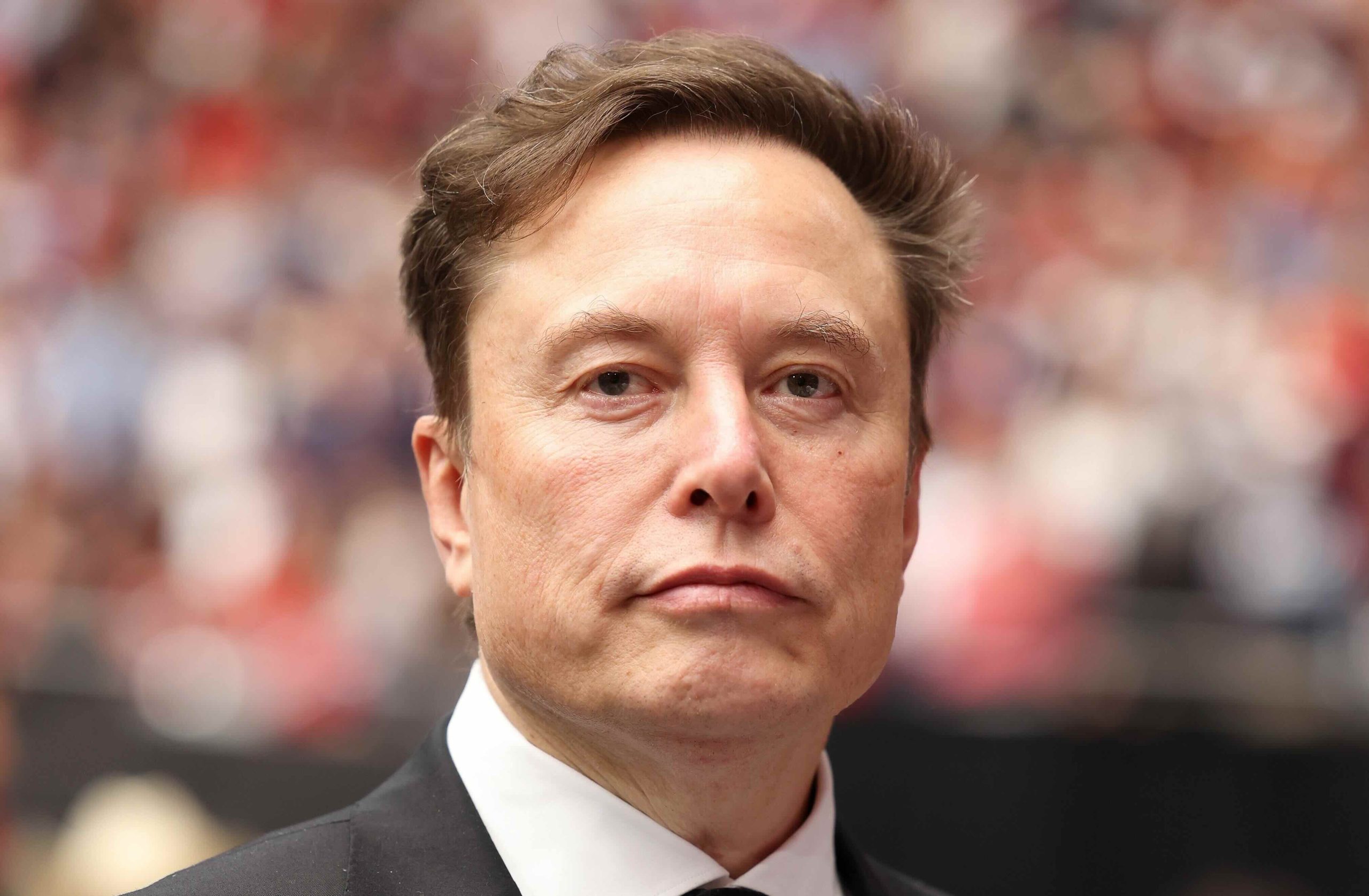
Elon Musk is poised to attend the 2026 World Economic Forum in Davos. The Tesla CEO was confirmed as a last-minute speaker for a session with BlackRock CEO Larry Fink, signaling a thaw in Musk’s long-strained relationship with the event.
A late addition
Organizers of the World Economic Forum confirmed that Elon Musk was added shortly before the event to a Thursday afternoon session, where he was scheduled to speak with Fink, as noted in a Bloomberg News report. Musk’s upcoming appearance marks Musk’s first participation in the forum, which annually draws political leaders, business executives, and global media to Davos, Switzerland.
Musk’s attendance represents a departure from his past stance toward the event. He had been invited in prior years but declined to attend, including in 2024. His upcoming appearance followed remarks from his political ally, Donald Trump, who addressed the forum earlier in the week with a wide-ranging speech.
A previously strained relationship
Musk had frequently criticized the World Economic Forum in the past, describing it as elitist and questioning its influence. In earlier posts, he characterized the gathering as “boring” and accused it of functioning like an unelected global authority. Those remarks contributed to a long-running distance between Musk and WEF organizers.
The forum previously said Musk had not been invited since 2015, though that position has since shifted. Organizers indicated last year that Musk was welcome amid heightened interest in his political and business activities, including his involvement in the Trump administration’s Department of Government Efficiency (DOGE). Musk later stepped away from that role.
Despite his friction with the World Economic Forum, Musk has remained central to several global events, from SpaceX’s provision of satellite internet services in geopolitically sensitive regions through Starlink to the growing use of xAI’s Grok in U.S. government applications.
News
Tesla states Giga Berlin workforce is stable, rejects media report
As per the electric vehicle maker, production and employment levels at the facility remain stable.
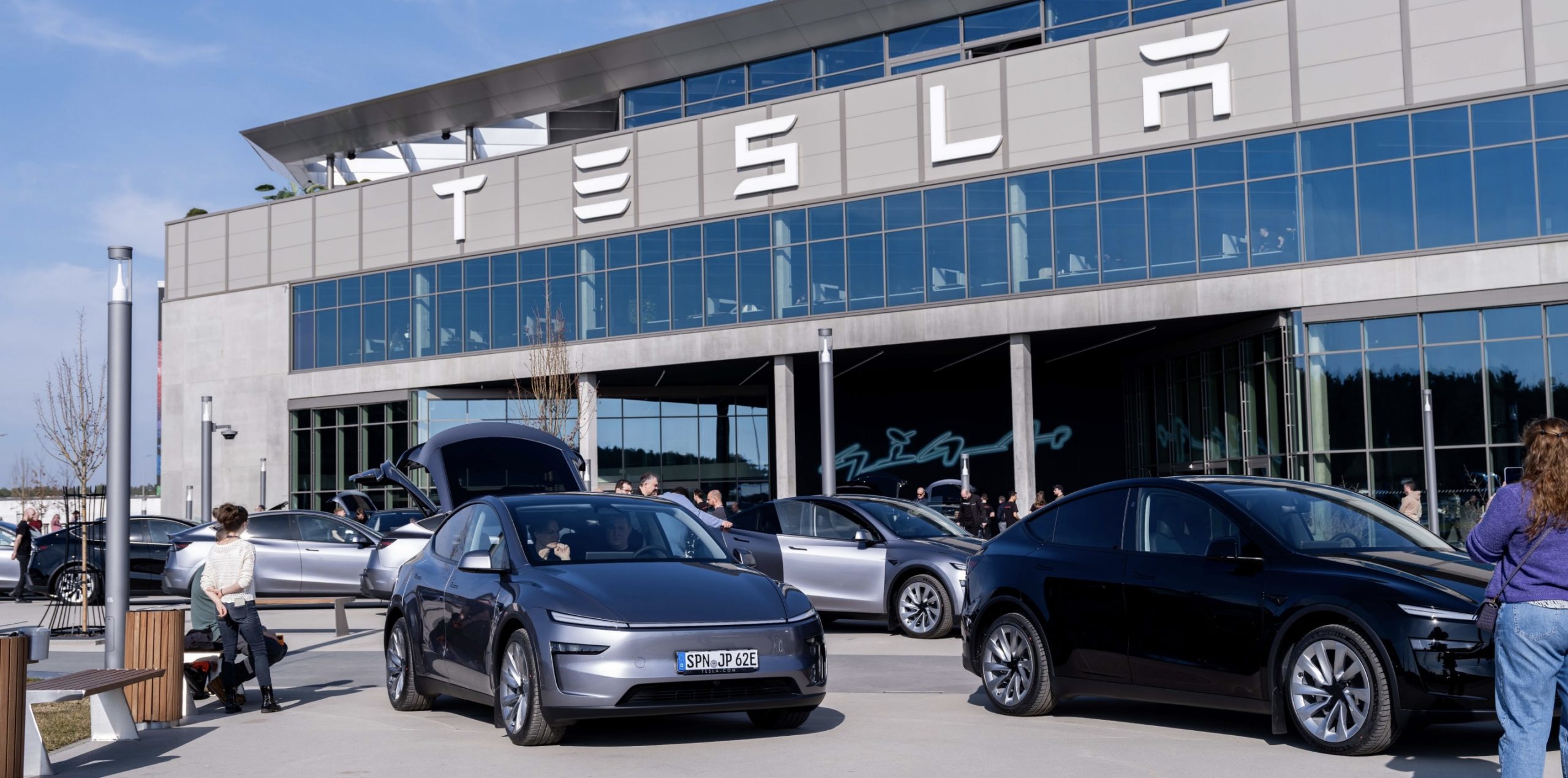
Tesla Germany has denied recent reports alleging that it has significantly reduced staffing at Gigafactory Berlin. As per the electric vehicle maker, production and employment levels at the facility remain stable.
Tesla denies Giga Berlin job cuts report
On Wednesday, German publication Handelsblatt reported that Tesla’s workforce in Gigafactory Berlin had been reduced by about 1,700 since 2024, a 14% drop. The publication cited internal documents as its source for its report.
In a statement to Reuters, Tesla Germany stated that there has been no significant reduction in permanent staff at its Gigafactory in Grünheide compared with 2024, and that there are no plans to curb production or cut jobs at the facility.
“Compared to 2024, there has been no significant reduction in the number of permanent staff. Nor are there any such plans. Compared to 2024, there has been no significant reduction in the number of permanent staff. Nor are there any such plans,” Tesla noted in an emailed statement.
Tesla Germany also noted that it’s “completely normal” for a facility like Giga Berlin to see fluctuations in its headcount.
A likely explanation
There might be a pretty good reason why Giga Berlin reduced its headcount in 2024. As highlighted by industry watcher Alex Voigt, in April of that year, Elon Musk reduced Tesla’s global workforce by more than 10% as part of an effort to lower costs and improve productivity. At the time, several notable executives departed the company, and the Supercharger team was culled.
As with Tesla’s other factories worldwide, Giga Berlin adjusted staffing during that period as well. This could suggest that a substantial number of the 1,700 employees reported by Handelsblatt were likely part of the workers who were let go by Elon Musk during Tesla’s last major workforce reduction.
In contrast to claims of contraction, Tesla has repeatedly signaled plans to expand production capacity in Germany. Giga Berlin factory manager André Thierig has stated on several occasions that the site is expected to increase output in 2026, reinforcing the idea that the facility’s long-term trajectory remains growth-oriented.
News
Elon Musk gets brash response from Ryanair CEO, who thanks him for booking increase
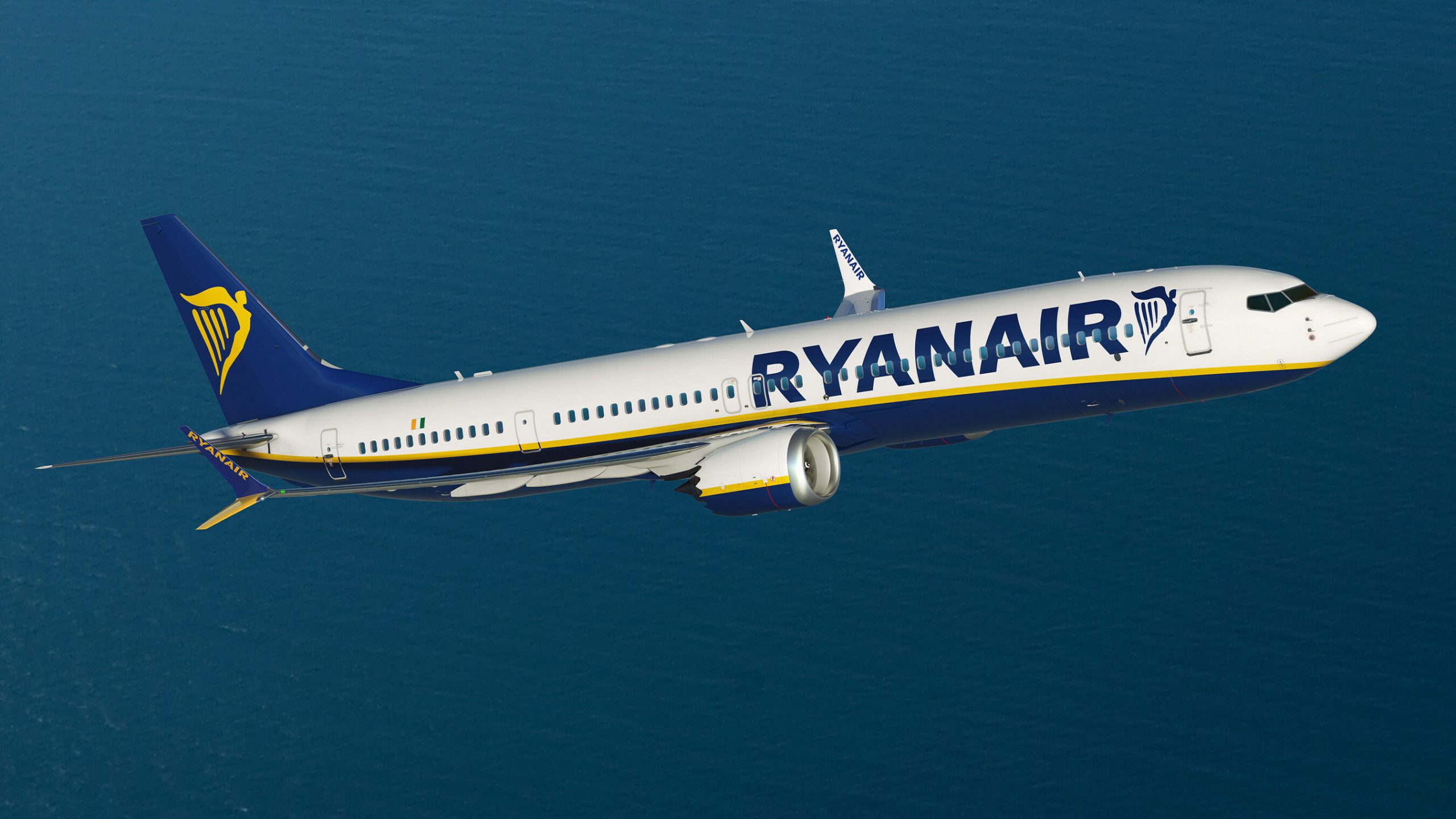
Elon Musk got a brash response from Ryanair CEO Michael O’Leary, who said in a press conference on Wednesday afternoon that the Tesla frontman’s criticism of the airline not equipping Starlink has increased bookings for the next few months.
The two have had a continuing feud over the past several weeks after Musk criticized the airline for not using Starlink for its flights, which would enable fast, free, and reliable Wi-Fi on its aircraft.
Tesla CEO Elon Musk trolls budget airline after it refuses Starlink on its planes
Musk said earlier this week that he was entertaining the idea of purchasing Ryanair and putting someone named Ryan in charge, which would oust O’Leary from his position.
However, the barbs continued today, as O’Leary held a press conference, aiming to dispel any beliefs about Starlink and its use case for Ryanair flights, which are typically short in length.
O’Leary said in the press conference today:
“The Starlink people believe that 90% of our passengers would happily pay for wifi access. Our experience tells us less than 10% would pay; He (Elon) called me a retar*ed twat. He would have to join the back of a very, very long queue of people that already think I’m a retar*ed twat, including my four teenage children.”
He then went on to say that, due to Musk’s publicity, bookings for Ryanair flights have increased over the past few days, up 2 to 3 percent:
“But we do want to thank him for the wonderful boost in publicity. Our bookings are up 2-3% in the last few days. So thank you to Mr. Musk, but he’s wrong on the fuel drag. Non-European citizens cannot own a majority of European airlines, but if he wants to invest in Ryanair, we think it would be a very good investment.”
O’Leary didn’t end there, as he called Musk’s social media platform X a “cesspit,” and said he has no concern over becoming a member of it. However, Ryanair has been very active on X for several years, gaining notoriety for being comical and lighthearted.
🚨 Ryanair CEO’s comments on X and Starlink today at the planned presser.
Strange comments here, it just feels like it’s time to end all this crap https://t.co/NYeG95bM82
— TESLARATI (@Teslarati) January 21, 2026
The public spat between the two has definitely benefited Ryanair, and many are calling for it to end, especially those who support Musk, as they see it as a distraction.
Nevertheless, it is likely going to end with no real movement either way, and is more than likely just a bit of hilarity between the two parties that will end in the coming days.








